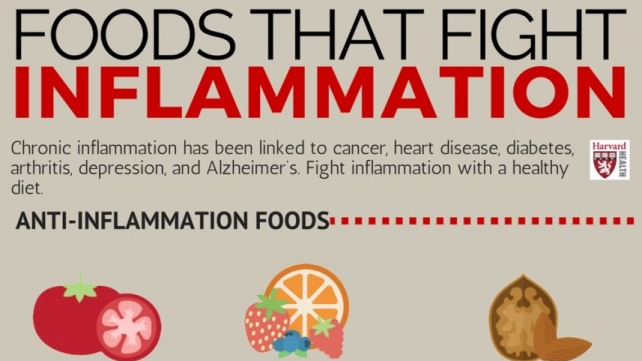Inflammation within the body can impact every aspect of our health; heart disease, arthritis, autoimmune issues and pain within the body. Inflammation is when the body generates a reaction to an injury generating heat and swelling.
This reaction is generally to an injury like a fall or a bruise – this is natural response and will disappear once the body is healed. Chronic inflammation is when the body does not know how to switch off this reaction so the heat and swelling becomes constant.Inflammation within the body can impact every aspect of our health; heart disease, arthritis, autoimmune issues and pain within the body. Inflammation is when the body generates a reaction to an injury generating heat and swelling. This reaction is generally to an injury like a fall or a bruise – this is natural response and will disappear once the body is healed. Chronic inflammation is when the body does not know how to switch off this reaction so the heat and swelling becomes constant.
What causes chronic inflammation? Over a prolonged period of time stress, heavy toxic load and a poor diet can all trigger this reaction within the body. Generally, those suffering with it will experience symptoms such as swollen joints, sore joints, pain within the body, poor sleep and a cascade of health issues.
How to treat chronic inflammation
There are many conventional methods which can support chronic inflammation including pharmaceutical medications, however none will get to the root cause and actually heal the body. However, the great news is that recent research has shown that anti-inflammatory based diets alongside stress management can ease the symptoms of chronic inflammation.
Chronic inflammation and pain can actually occur just from being overweight. In one human study, of those reporting chronic pain, 58% were overweight or obese, indicating that more chronic pain sufferers are above normal weight than not. (1) However, diet itself can cause the chronic elevation of inflammatory cytokines, which can result in prolonged hypersensitivity to pain. This is an important finding, in that those people who consume the Standard American diet containing a high percentage of carbohydrates and unhealthy fats, may experience chronic inflammation even in the absence of obesity. So, it is important to consider that the quality of one’s diet can affect inflammation and pain independent of weight. (2)
Harvard Health (3) have generated a helpful info-graphic displaying the foods we should and should not be including in our diet.There are many conventional methods which can support chronic inflammation including pharmaceutical medications, however none will get to the root cause and actually heal the body. However, the great news is that recent research has shown that anti-inflammatory diets alongside stress management can ease the symptoms of chronic inflammation.
The cornerstones to the diet are:
- Consume whole foods, and eliminate all processed foods
- Strive to buy clean foods: organic, non-GMO and sea caught local fish
- Reduce the amount of carbohydrates, especially processed carbohydrates (generally the white kind)
- Include healthy sources of protein – eggs, nuts, seeds, pulses, poultry keeping red meats to minimum
- Good fats are important, especially the omega-3 fatty acids found in oily fish, nuts, seeds, avocados, olive oil,
- Add a wide variety of vegetables and fruits to your meals aiming for 10 portions (size of a medium apple a day)
However, diet is not the only tool in your tool box, there are some key lifestyle changes that should work alongside.
Lifestyle factors that can reduce pain and inflammation
These strategies should be implemented to get maximum benefit to your anti-inflammatory diet.
• Keep a healthy weight. Managing your weight will automatically reduce inflammation and associated pain. Excess adipose tissue (fat tissue) triggers low-grade, systemic inflammation.
• Engage in regular exercise. When you use your muscles, they actually cause a pro-inflammatory state, but surprisingly, the overall systemic inflammation is decreased. (4) Moderate exercise for 30 minutes at least three times a week has been shown to significantly improve insulin sensitivity, reversing insulin resistance. This helps bring down inflammation and pain levels.
• Get adequate sleep and practice good sleep hygiene. Staying up late is not good for your stress levels, or for weight management. Aim for 7-9 hours of sleep per night, the hours before midnight being the most beneficial. Practice good sleep hygiene by winding down earlier in the evening, turning off computer screens and electronics, and by keeping your bedroom cool, quiet and dark.
• Manage your stress levels. Keep your stress hormone, cortisol, in check by practicing some mindfulness each day. Meditation, walking, or gentle yoga are some good examples. Choose one that fits your lifestyle.
1. https://www.ncbi.nlm.nih.gov/pubmed/21397401
2. https://www.ncbi.nlm.nih.gov/pmc/articles/PMC48173…
3. https://www.health.harvard.edu/staying-healthy/foo…
4. https://www.ncbi.nlm.nih.gov/pubmed/16033812

